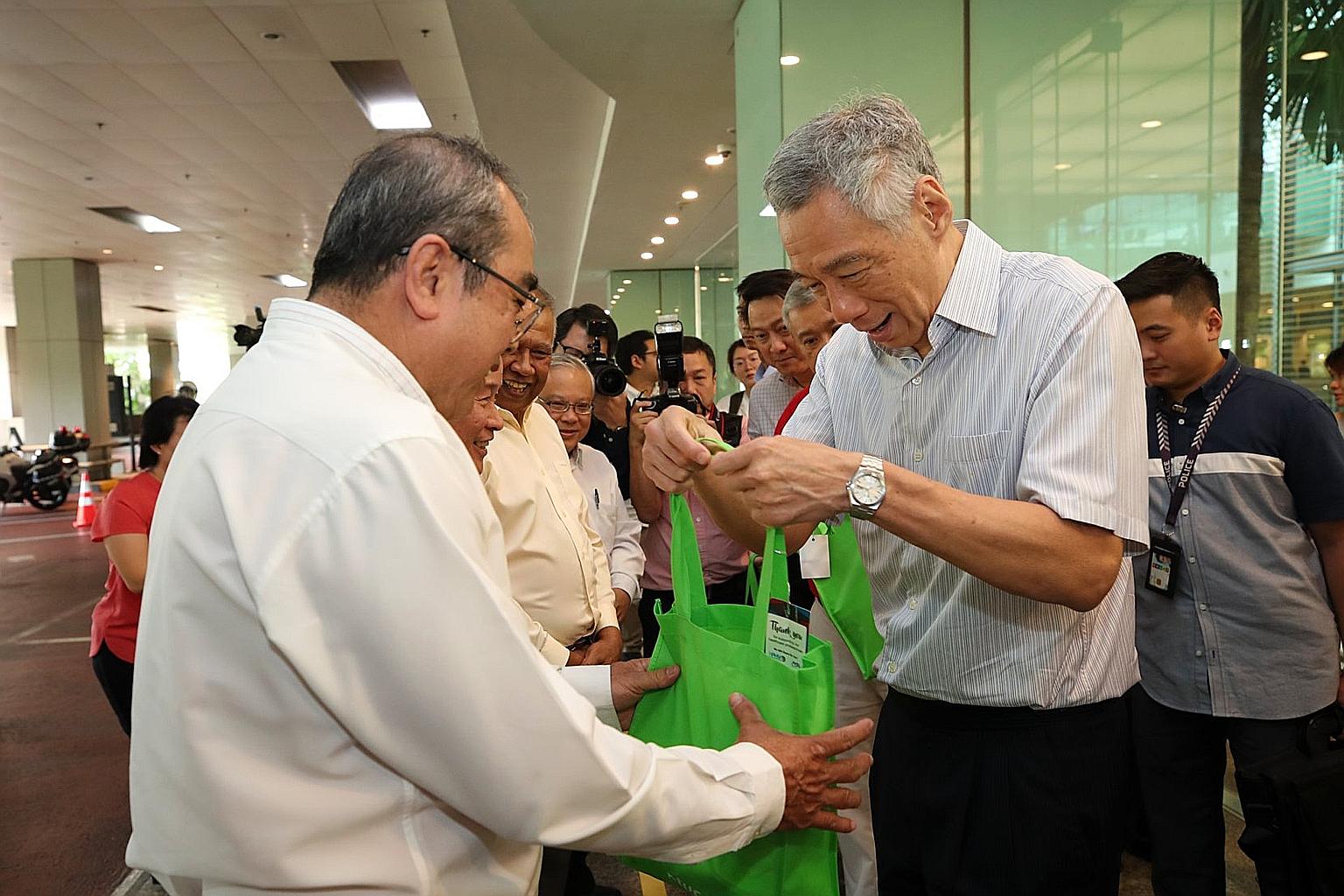PM Lee Hsien Loong on economy, fighting coronavirus as a region
Prime Minister Lee Hsien Loong spoke to reporters on the coronavirus outbreak yesterday after visiting Changi Airport Terminal 3. This is an edited transcript of his remarks.
Sign up now: Get ST's newsletters delivered to your inbox

Prime Minister Lee Hsien Loong handing out care packages to taxi drivers at Changi Airport yesterday to thank them for continuing to ferry passengers amid the coronavirus outbreak. PHOTO: LEE HSIEN LOONG/FACEBOOK
Q: What will be the economic impact of the Covid-19 outbreak on the region? Is Singapore likely to see a recession?
A: The impact will be significant, at least in the next couple of quarters. It is a very intense outbreak. I think it is already much more than Sars, and economies of the region are much more interlinked. China, particularly, is a much bigger factor in the region.
Therefore, I can't say whether we will have a recession or not. It is possible, but definitely our economy will take a hit.
Q: There is increased vigilance - thermal screening, more frequent cleaning. Is this a new normal and how long will it last?
A: It is what we need to do for now. How long we need to do it will depend on how the outbreak develops in Singapore and in the region and the world. I think it will be for some time.
Sars took us from March (2003), when we had our first cases, until July, before we were declared clear. That was, I think, very fast. I expect it not to be so fast this time. It will eventually pass, and we will be back to normal, but I cannot say for sure how long.
Q: The numbers of local clusters and transmitted cases are rising. Is there widespread community transmission here? Will Singapore be shifting its approach?
A: I don't think we have reached that point yet. We are watching the numbers carefully. (On Thursday), the numbers were quite high, but they were mostly traceable. So, we will have to watch the trend, whether the numbers go up and also whether the cases are traceable. We can continue to do contact tracing and squeeze out the clusters one by one.
I said last week in my message when I spoke to Singaporeans that we may have to change our approach at some point. I don't think we have reached that point yet, but it is an evolving situation.
Every day brings new developments, and we cannot be sure which way it will go. So, we have to watch and respond quickly but make a judgment at each point, what is the right thing to do.
We have to keep Singapore going and keep making a living. Life has to go on. So, we have to calibrate and judge as we (take) each step, what is the most prudent thing to do. Err on the side of caution, but make a sensible judgment. That is what we are trying (to do).
Q: A few countries have issued travel advisories against Singapore. Are you concerned that this will escalate to a travel ban?
A: Our reported cases look quite high because we are working very hard to identify any case that may be in Singapore, and in a city like Singapore, it is possible for us to be quite thorough.
Whereas, if you are in a big country, 10,000 islands or big landmass with many rural areas, it is not so easy to track what is happening in the country.
So, we have to make this known to other countries... make a sound scientific and medical judgment. Don't just (have) a knee-jerk (reaction) based on somebody's headline.
Q: Singapore has established a working group with Malaysia to tackle the virus. Will such cross-border cooperation be expanded?
A: We are cooperating closely with Malaysia because from the public health point of view, we are one area because there are so many people who go back and forth between Singapore and Malaysia every day - more than 100,000.
Our ministers of health have been in touch. Our professionals will also need to work together and exchange information as well as coordinate the measures that are being taken.
With Asean, Vietnam is taking the initiative to coordinate an Asean response. They have worked out a statement and we have given them our comments and it will come out, I imagine, within a day or two.
But we do need to exchange information and cooperate with one another to avoid working at cross purposes. We did that during Sars, the ministers met.
This time, we should do something similar within the region because for us in Singapore, if the region has a problem, it is going to be very, very difficult for Singapore to isolate itself and keep the problem outside our boundaries.


